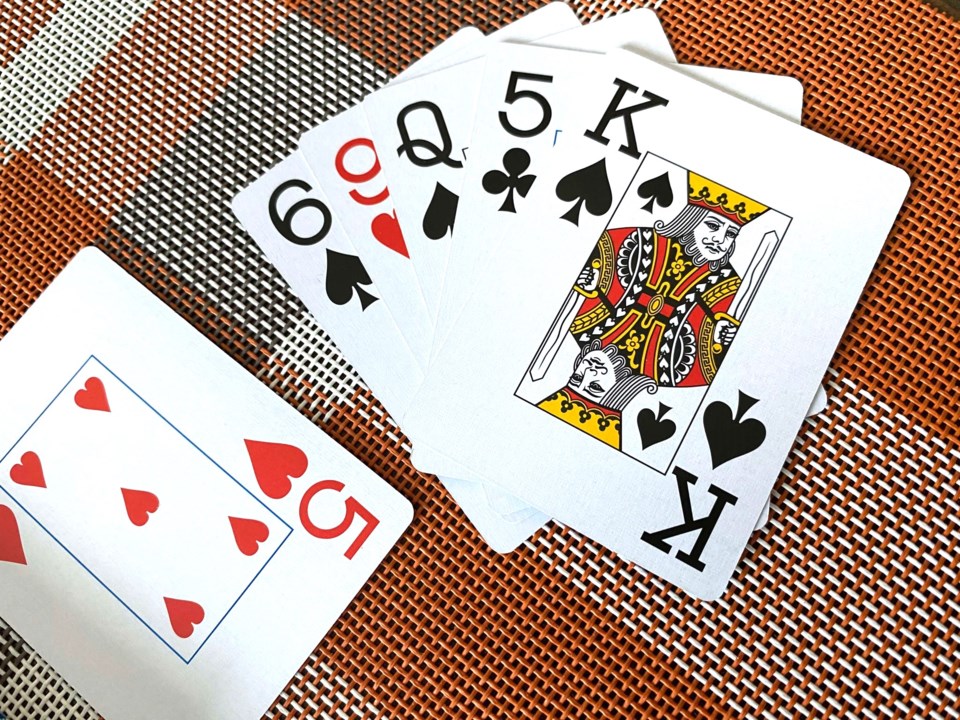YORKTON - Kings in the Corner is a game that surprised in a couple of ways.
To start with I had assumed this one given its general simplicity of play was likely created decades ago, but that is not the case. While uncredited in terms of its designer, it was released only in 1996 by Jax Ltd. That offering appears to have a nice lay-out hub for the game, but this one hits the table super simple with your standard 52-card deck.
Kings in the Corners is a shedding game where players – two-to-four in this case – try to be the first to empty their hands.
There are many shedding games, and KitC would likely rate among the simplest in terms of rules – so if you are seeking a card game which mentally challenges this one will not fit the bill.
But, if you want a game that allows social discourse amid the laying of cards – something to relax with over coffee – this one should be tried.
To start deal seven cards to each player. Put the rest of the cards face down in the centre of table to form the stock. Flip four cards face-up from the stock, and place them North, East, South, and West from the stock pile, to start four foundation piles.
Each turn you draw a card from the stock.
On a turn players have several options available to them, and somewhat unusually may make any number of moves on a single turn.
The most basic of moves is to lay a card from your hand on one of the foundation piles. The card you play must be the next lower in rank and opposite in colour
Another option lends itself to the game’s name. Players can place a king from their hand to start a new foundation pile in an empty space in one of the four diagonal corners of the tableau. It is then possible to build on the king in the same way as on the original foundations.
And there are a couple of other easily understood options, which when combined give players options on each turn.
The game ends when a player rids themselves of their final card.
Each player receives penalty points for the cards left in their hand at the end of play. A king costs 10 points and the other cards cost one point each.
The points are accumulated from deal to deal until some player reaches or exceeds a target score. The winner is the player who has the lowest number of penalty points at this time.
This one is actually simpler than cribbage in terms of rules, and even gin rummy, two long time standards for many, but it’s core mechanic is so different it’s a nice addition to the gaming mix when cards are more a backdrop for broader socialization, like the time leading up to the holidays of December.






